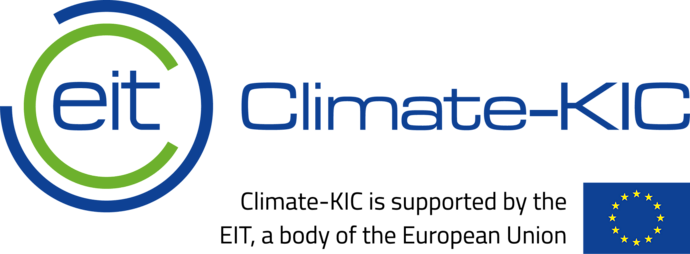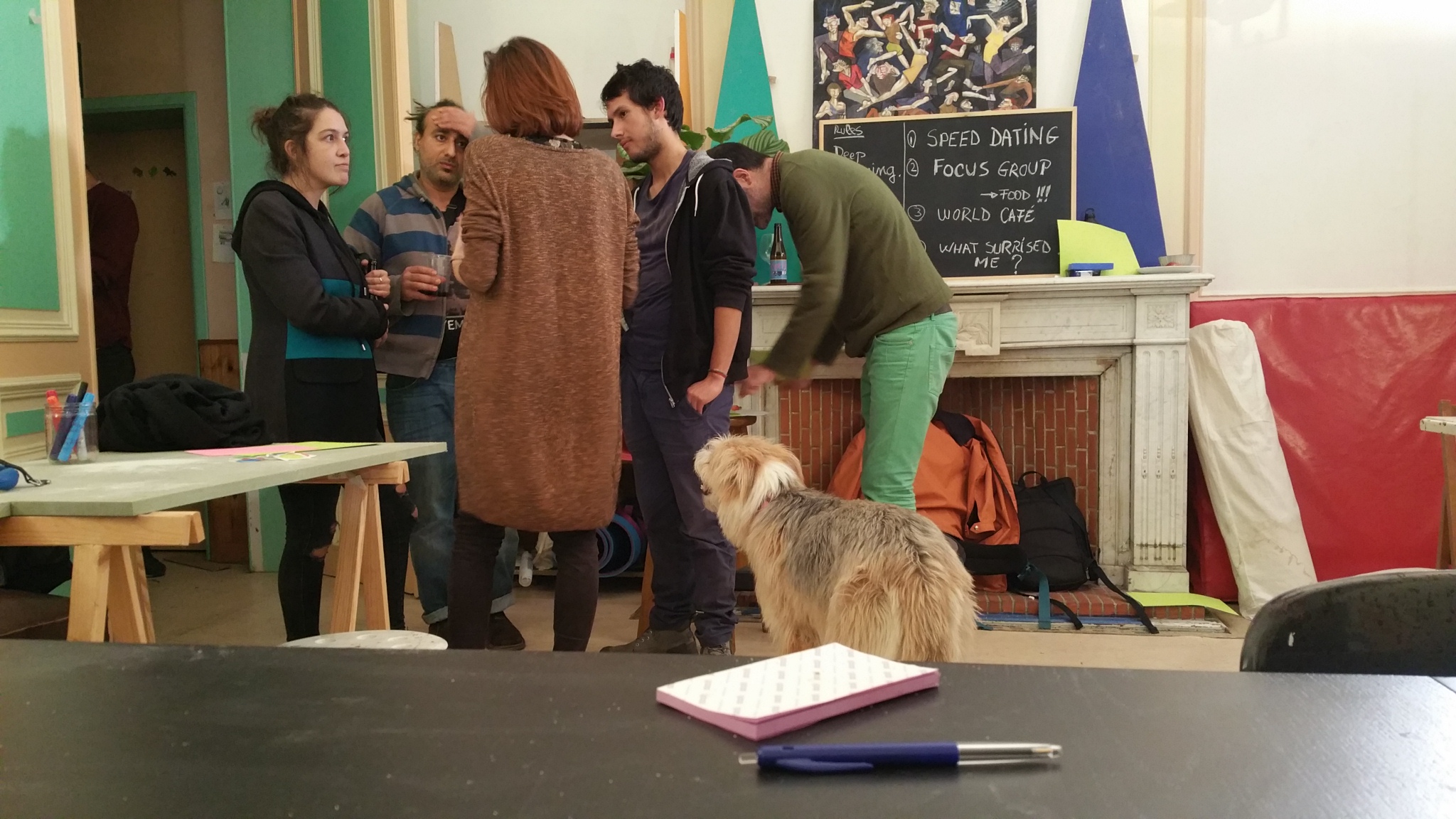This post gathers documentation from The Reef community workshop on communal living. If you have participated, leave a comment below with your experience and feedback ![]()
If you want to be included in the next workshop, sign up below, you can pick a form in the language you prefer. → Lire en plus sur les ateliers - ici.
Today, everybody is displaced, the concept of home is changing. We want to rethink a home that is collective, a communal living. The Reef project is open and the idea is to build a strong community to make it real.
The idea of the Reef is to try a mixt model of green communal living and coworking in Brussels. The Reef is a project for the community, for the kids and everyone active at shaping the future.
Workshop programme:
3 rules of engagement : Deep Listening ~ Take Space when you need it ~ Don’t judge what others are saying
1.Speed Dating
In small groups, participants took 2 minutes to share his / her experiences regarding the following questions. After 15 minutes, we gathered and shared what we learned about the other person.
Table 1. How I do what I do
Table 2. How I interact with others in Brussels
Table 3. How I see my future
2. Focus Group
Participants were gathered into 1 group and openly discussed about the following questions
Do you think Brussels needs more community, more communal living models ?
What does living in community really means ? This is a concept relating to sharing a space and put in practise the community agreement build by the community.
Values, means of communication and resources can be shared within the community.
Yet, members need tools for conflict resolution. The community also requires time,money, intellectual and physical energy to function.
For those of you already living communally, how did you create the group ?
The capacity of personal investment in the community is a relevant indicator. This indicator can be balanced with the overall project the community is building regarding social inclusion or cultural development for example.
Do you think you find the right match ?
Experience proves it might be better to start with a few people, not necessarily life lasting friend. Experience also proves that a few, deep implicit rules might be more powerful than setting a list of rigid explicit rules at the beginning. The main priority is to develop a clear idea of how we want to live and then starts something. At the beginning even 7 - 9 people is already enough to start.
Would you be ready to rent, to buy, to negotiate a lower price than the market ?
Co-owning a place requires so much trust, you have to have done so much in your community agreement before putting money out.
A more flexible option could be to rent the space to the community and get spaces of freedom to move in and move out when necessary. For example, in such a model like a trust.
This structure could be another way of creating assets without taking too much risks.
In the trust model, a community buy a place, but the individuals rents it. People have flexibility to move in and move out. Especially when you have kids, you need a solid warranty on your investment. A trust would act as a neutral third part collecting investments.
3. World Café
Participants were divided into 3 smaller tables. Each table focused on one main area of the Reef community building.
The House: how does the space look like? How much common space, how much individual space? How many kitchens/ bathrooms? Green space? Where is it located? Who is it open to? Can people visit?
The space could be divided between common spaces and individual spaces. Individual spaces could be flexible depending everyone’s needs. Some space could served as a guest house.
The space could include a logistical area and a handraft area. It could also have an open coworking space during the day, with a café inside. This coworking space will bring a connection between the ecosystem and the outside world.
This place could also have agricultural production. With a land or even a terrace one can create a planet. Agroecology is an important topic. Building a place where we can grow food, have some animals, do aquaponics could be perfect.
The Activities: collective habits, economic organisation, activities for neighborhood. Which tools, methods, practices can we build to create a solid and engaged community?
Internal activities could be separated from external activities.
Cooking, eating are basic communal activities. Create a collective garden, do recup of unsold goods are also ideas. Cleaning and laundry are collective habits to discuss.
A connection can be created between inside activities and outside activities. For example if there is dancers in the house, then part of the outside activities could be nourished by living arts activities. There is also the idea of mixed used activities during day and night.
In Berlin, there is this co-housing space called Happy Pigeons. At night part of the house become an open place (for workshops, yoga classes for the neighborhood) and generates revenues.
At Lamab, activities such as graffitti, rollers, dance open a window of sharing for both users and initiators. Living arts require lot of interaction which strengthen the communal life when its well balanced.
The Community Agreement. Which could be effective principles, structures for the Reef: financially (do people have to pay and for what?), socially (who is included/ excluded? how are decisions made? how are conflicts resolved?), spatially (who can access space? how can someone leave the community?).
The group only focused on the financial aspect of the question.
Financially, a common pot could help to share money for everythings the community might need such as food and basic expenses.
Ressources can be financial but also related to skills or just people giving time for community.
About the structure, many forms exist for sure : asbl, cooperative, foundation.
Foundation looks relevant to create a trust and generate assets. The foundation is a legal structure that appear to protect assets that will turn into a patrimony. This patrimony is here for everytime.
In an ideal situation, everybody put the same account in the pot at the beginning but it depends because not everyone will come with the same individual situation in the community.
What did YOU learn? What surprised you?
If you participated, leave a comment below with your feedback!
If you want to be included in the next workshops on 14 November and 28 November, sign up here (pick a form in the language you prefer):
This activity is supported by


 ! The fact of taking that realization from a group experience made me realize how much this project is not one that can or should be done alone.
! The fact of taking that realization from a group experience made me realize how much this project is not one that can or should be done alone.